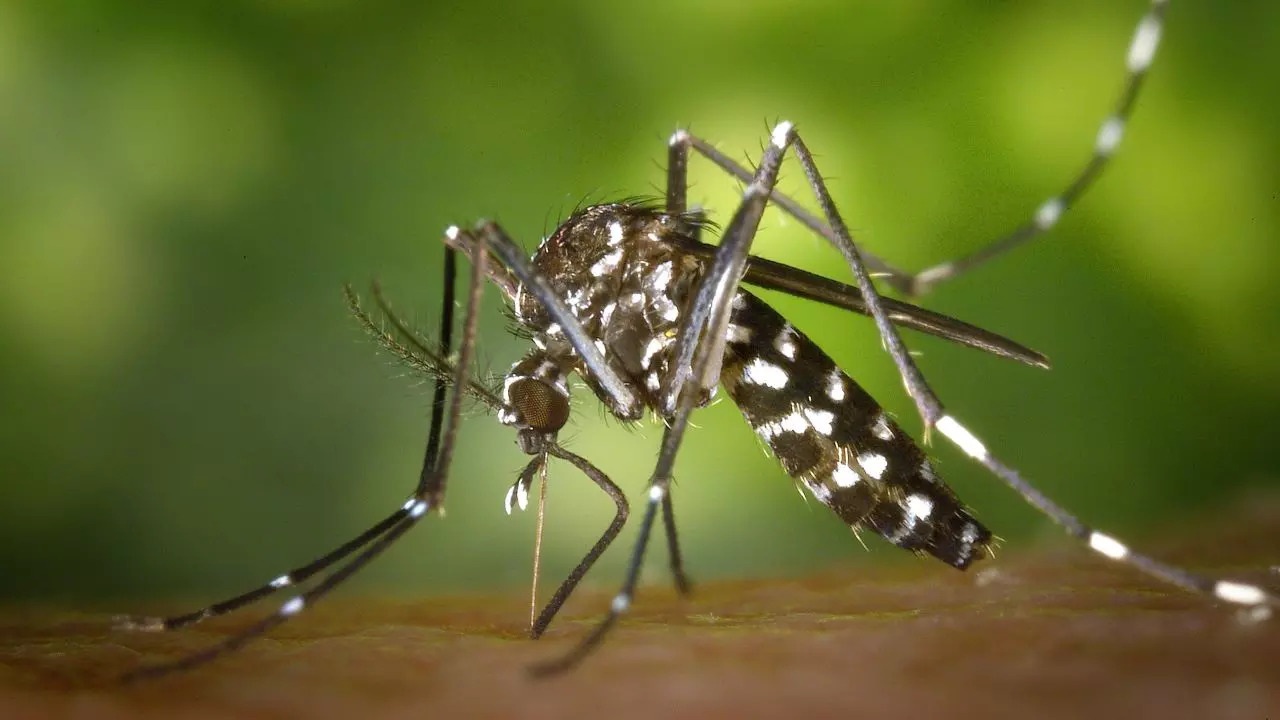Contents
Dengue, swine flu, chikungunya cases rise in Delhi, say doctors; Tips to keep yourself safe from these diseasesMeasures to prevent dengue and chikungunyaremove standing wateruse mosquito netinstall window and door screenswear protective clothingapply insect repellentUse mosquito repellent coils or vaporizing matsnatural huntercleanliness
-
news
-
Health
Dengue, swine flu, chikungunya cases rise in Delhi, say doctors; Tips to keep yourself safe from these diseases
401 new dengue infections were reported in Delhi between 22 and 28 September. Till September 28, 1,052 cases of dengue have been reported. Doctors say they see around 100 patients daily with symptoms like fever, body ache and fatigue. Read on to know about tips to keep yourself safe from dengue and chikungunya.

Dengue, chikungunya cases increase in Delhi
Recently there has been an increase in the number of dengue cases, swine flu And Chikungunya Cases in Delhi, doctors said. The Municipal Corporation of Delhi (MCD) reported that 401 new infections were recorded in the region between September 22 and 28. According to the report, Delhi recorded 1,052 dengue cases till September 28, with South Delhi region reporting the highest number of cases. By Najafgarh Zone.
Speaking to IANS, Dr Sharang Sachdeva, senior consultant and head of emergencies, Aakash Healthcare, said, “Dengue and swine flu cases have been continuously increasing in the last few weeks. Currently, we are seeing around 100 patients daily with symptoms like fever, body ache and fatigue.
“Of these, 20-25 per cent are diagnosed with dengue, while 10-15 per cent are diagnosed with swine flu, indicating overlap of multiple infections during this period,” he said.
One dengue-related death has been reported so far this year, in which a 54-year-old patient died at Lok Kalyan Hospital.
“This season is favorable for mosquito breeding, so there may be some increase in vector-borne diseases like dengue and chikungunya,” Dr Harshal R Salve, additional professor, Center for Community Medicine, AIIMS, New Delhi, told IANS.
Meanwhile, MCD data also shows a significant increase in both malaria (67) and chikungunya (13) cases in the period September 22-28. Around 430 cases of malaria have been recorded this year till September 28, while 321 cases were recorded during the same period in 2023. Chikungunya cases have also increased, with 55 cases reported in the same period this year, up from 24 in the same period last year. ,
These diseases become difficult to diagnose due to similarity in symptoms. Dr. Sachdeva said, “However, as dengue progresses, different symptoms start emerging, including severe headache, pain behind the eyes, joint and muscle pain, and rashes. In more severe cases of dengue, bleeding from the nose, gums, or minor bruising may occur.
Measures to prevent dengue and chikungunya
remove standing water
Mosquitoes, especially the Aedes species, breed in stagnant water. Empty containers such as flower pots, tires and buckets regularly.
use mosquito net
Use mosquito nets treated with insecticides when sleeping, especially in areas where mosquito activity is high. It is effective for infants and young children.
install window and door screens
Keep mosquitoes away by using fine mesh screens on windows and doors. Repair any holes or gaps.
wear protective clothing
Long sleeves, pants, and socks help reduce skin-to-skin contact with mosquitoes, especially during hours of peak mosquito activity (morning and evening).
apply insect repellent
Use EPA-approved repellents containing DEET, picaridin or oil of lemon eucalyptus. Apply to exposed skin and clothing for long-term protection.
Use mosquito repellent coils or vaporizing mats
Use these to avoid mosquitoes when you’re indoors. Ensure proper ventilation to prevent inhalation risk.
natural hunter
Guppies or larval-eating species of fish can be added to stagnant water sources to reduce mosquito larvae.
cleanliness
Participate in community efforts to clean public areas and empty potential breeding sites such as open drains and garbage containers.
(With inputs from IANS)
Get the latest news live on Times Now with breaking news and top headlines from around the world.


